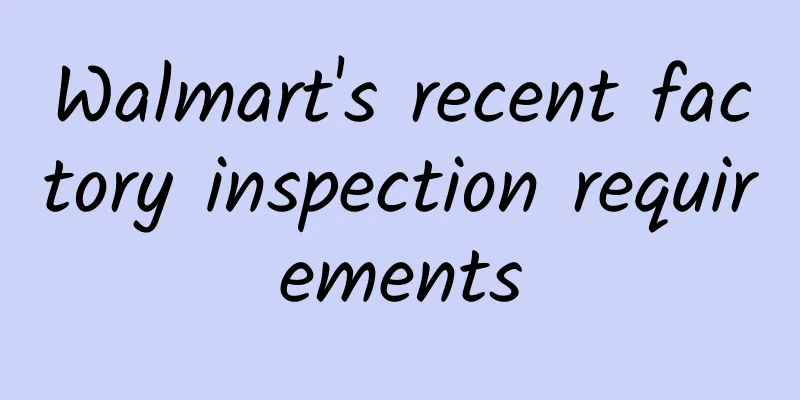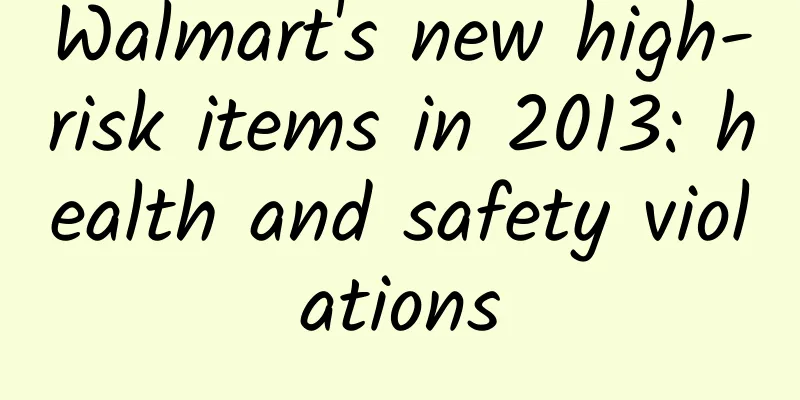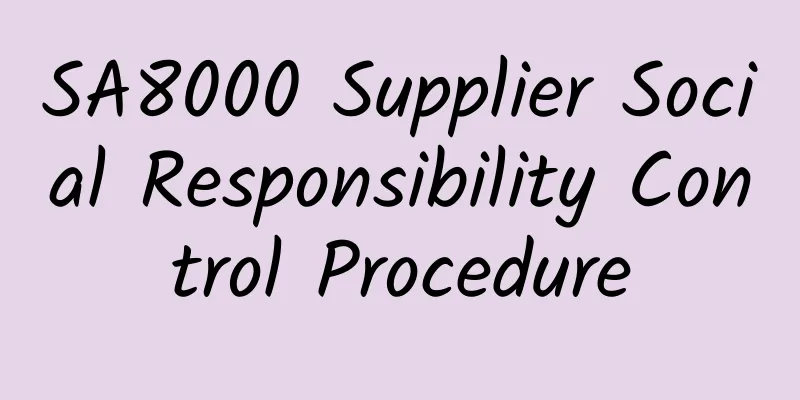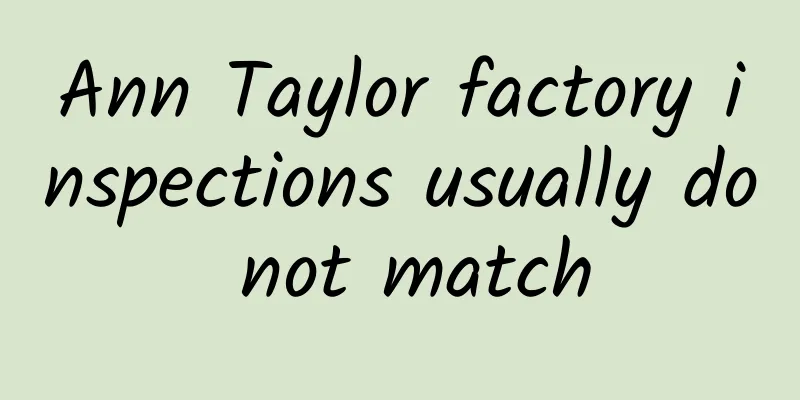Walmart's recent factory inspection requirements

|
Wal-Mart's new factory inspection requirements: Suppliers must ensure that each production facility complies with national and local environmental laws, including all laws related to waste disposal, air emissions, emissions, toxic substances and hazardous waste disposal. Suppliers must verify that all input materials and components come from international treaties, in addition to local laws and regulations that allow for harvesting. In addition to meeting specific laws and regulations, such as obtaining necessary licenses and approvals related to waste disposal, air emissions, wastewater discharge, water use, energy conservation, greenhouse gases, hazardous substances, environmental impact assessments, land use, noise pollution, Wal-Mart expects suppliers to implement measures to reduce air and water pollutants, energy and water use, and waste. Specifically: Waste Management - Suppliers must ensure that factories: Air Emissions Management - Suppliers must ensure that factories: Energy Use and Greenhouse Gas (GHG) Management - Suppliers must ensure that factories: Land use and biodiversity, suppliers must ensure that factories: Environmental Management System - Suppliers must ensure that factories: Hazardous Substance Management/Soil and Groundwater Pollution Prevention - Suppliers must ensure that factories: |
<<: Let’s see what the quality control department needs to prepare for the TS16949 system audit?
>>: WAL-MART factory inspection rectification report issues
Recommend
Warning signs required for BSCI factory audit-hazard warning signs
Warning signs required for BSCI factory audit: ha...
A brief introduction to factory inspection examples
Do you ask the factory to provide an employee ros...
Walmart now accepts certification from certain industries to avoid duplicate audits
According to an email from Walmart's Global S...
What is the Nanjing Cross-border E-commerce Association like? What is the business scope of the Nanjing Cross-border E-commerce Association?
On January 21, 2011, with the strong support and ...
SA8000 Supplier Social Responsibility Control Procedure
SA8000 Supplier Social Responsibility Control Pro...
How to avoid infringement on eBay products?
eBay has zero tolerance for infringing products. ...
Compared with the US eBay account, what are the disadvantages of Hong Kong eBay?
A. Goods posted by local sellers → B. Goods poste...
Is it reliable to buy things on eBay? How to choose a reliable seller on eBay?
A reader asked me if it is reliable to buy things...
What is uShip? What is uShip's development model?
What is uShip? uShip is an electronic freight mar...
What is Tanga? What do I need to sell products on Tanga?
Tanga is a well-known American e-commerce platfor...
What is the Foreign Trade Building? What does it contain?
Shenzhen Yipai Intelligent Technology Co., Ltd.&#...
How is Yilong Express? What are the international express routes of Yilong Express?
How about Yilong Express? Yilong Express Co., Ltd...
FSC forest certification site information
FSC forest certification has become the standard ...
The mask export policy has been adjusted again and will take effect from April 1st!
Starting from April 1, the customs will release m...
The most comprehensive guide to applying for "climate-friendly" projects (Part 1)
When searching for a product, when will the scree...









